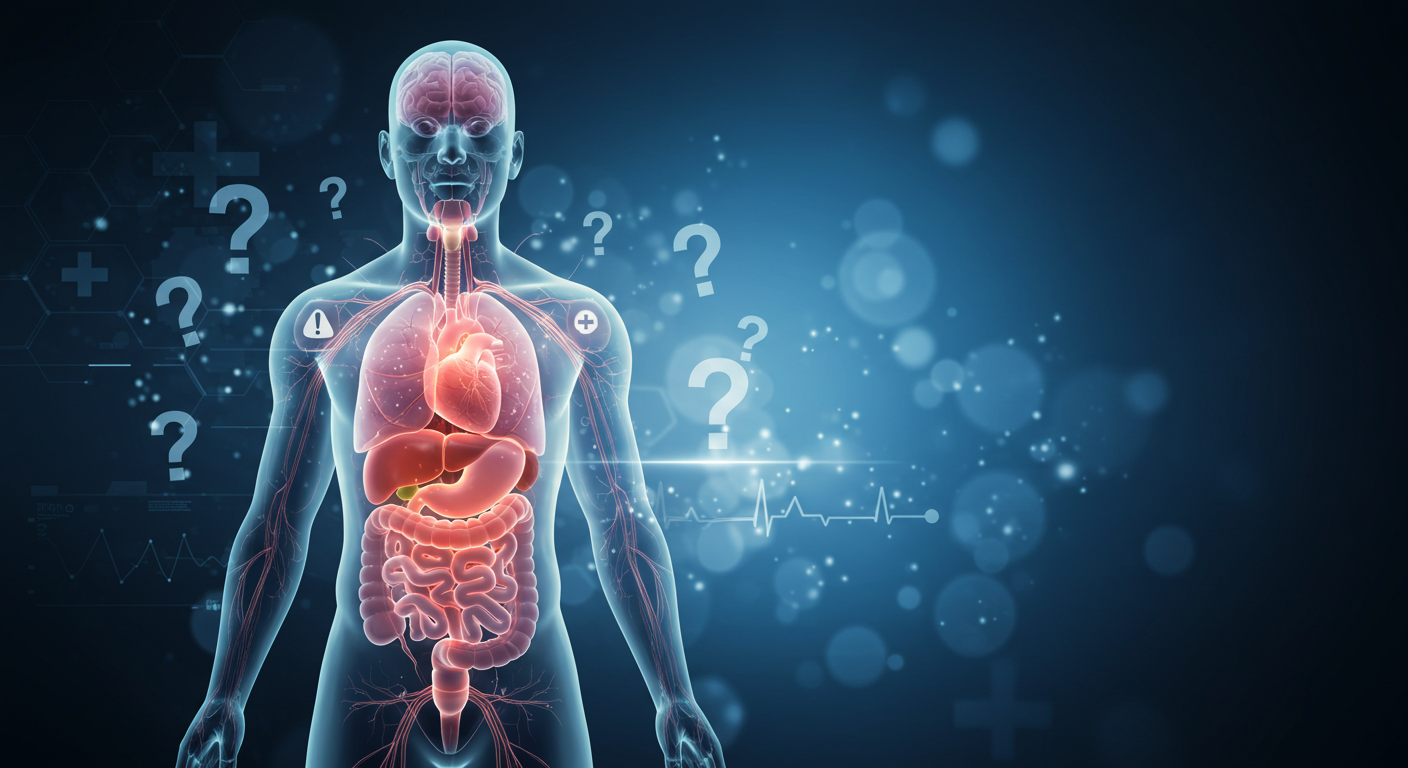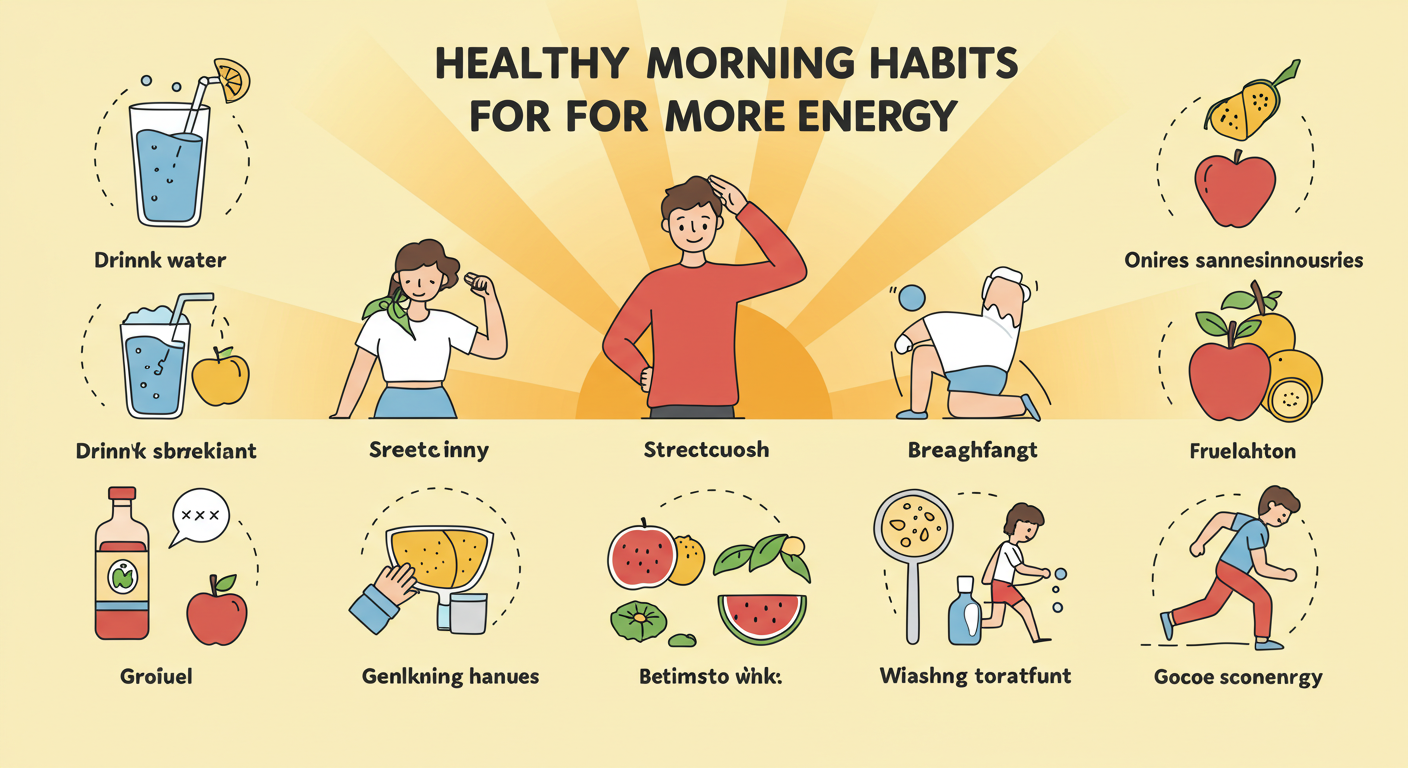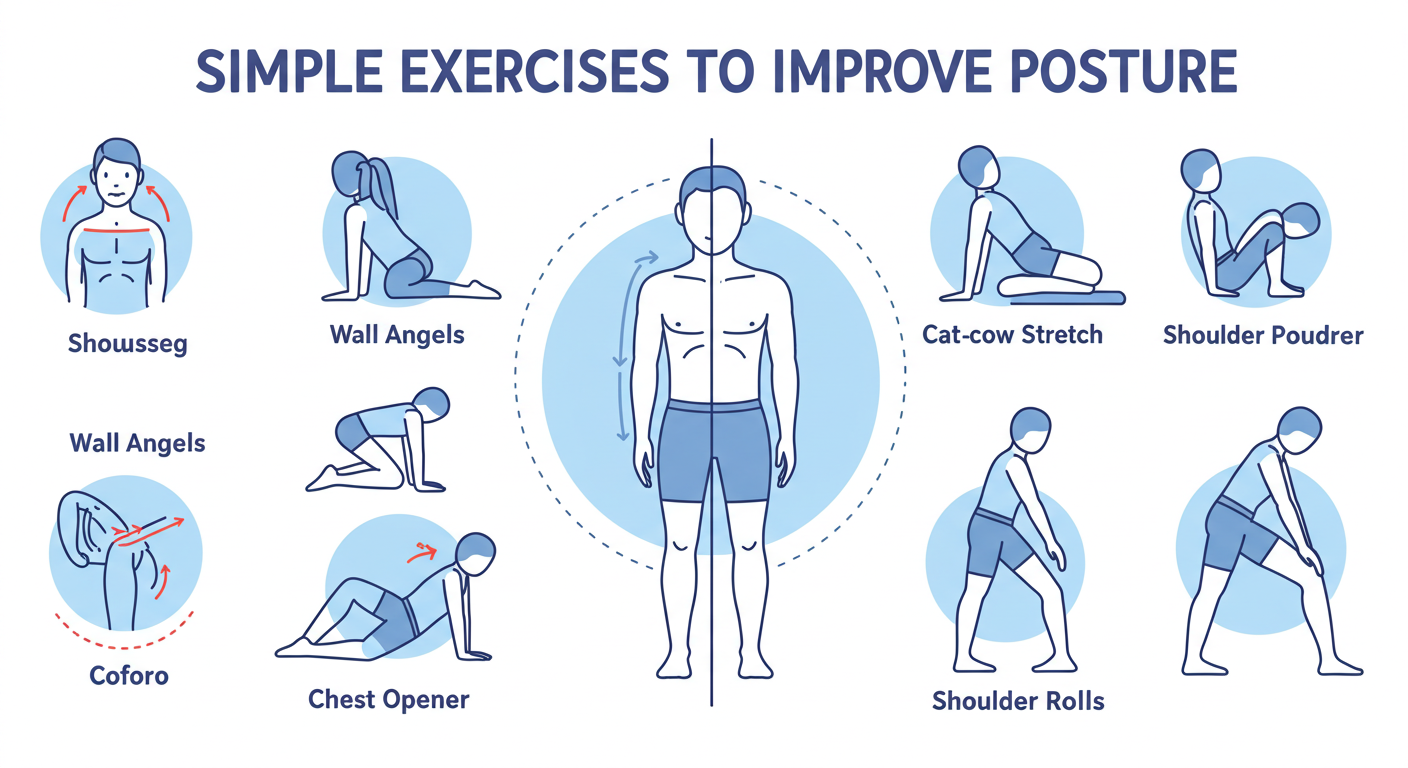When I first started feeling extremely fatigue even after a full night's sleep, I didn’t think much of it. But over time, I noticed a strange tingling in my hands and feet that later turned into numbness. As someone who studies nutrition and general health, I knew these were not common stress-related issues. The feeling was different—deep, unsettling. One day while brushing my teeth, I spotted a red, sore tongue, which I later confirmed was glossitis, a strong indicator of Vitamin B12 deficiency.
Read More: Lung Cancer
This type of deficiency can manifest in a variety of ways, many of which people ignore or misread. Some may think it’s just tiredness or mood swings, but these signs go deeper. For example, people may suddenly experience weakness in their muscle or trouble keeping their balance. Others might notice sudden vision issues or shifts in mental clarity, often marked by confusion or even depression.
I once met a patient whose only visible symptom was pale skin, yet their B12 levels were critically low. Another had persistent mouth ulcers and thought it was due to spicy food. But what many don’t realize is that Vitamin B12 plays a major role in supporting your body’s nerve and blood cells. Without it, symptoms start piling up quietly—often too quietly.
The Process of Absorbing Vitamin B12
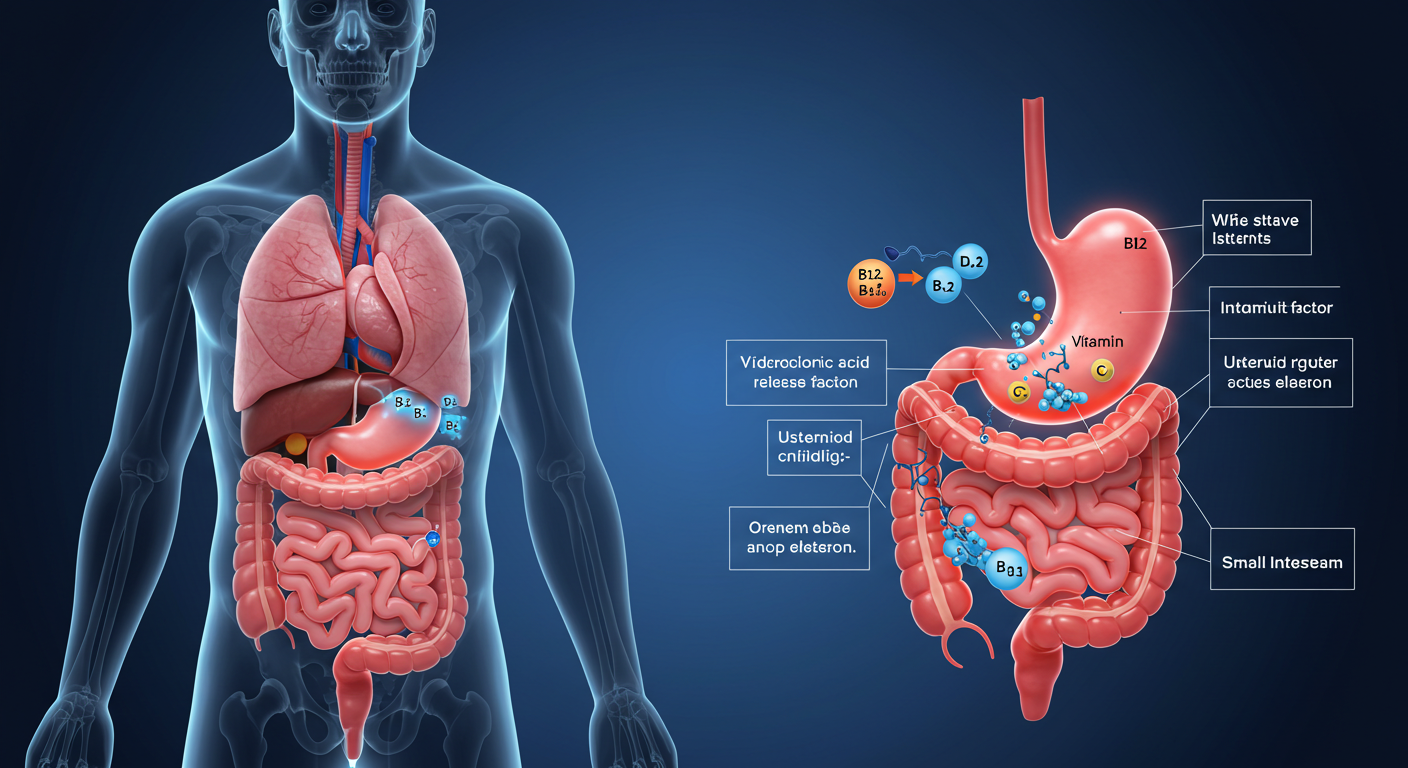
Understanding how our body absorbs Vitamin B12 is the key to solving why many people unknowingly develop a deficiency. In my years working in nutrition, I've seen patients with clear symptoms, yet they were unaware that their bodies weren’t absorbing the nutrient properly. For your body to function properly, it depends on this important vitamin to help make DNA, support red blood cells, and maintain healthy nerve cells. But if you're not getting enough from the food you eat, problems start building quietly inside your cells.
Let me explain what happens inside your digestive system. When you eat, your stomach produces hydrochloric acid. This acid’s job is to break down the food and remove the Vitamin B12 from it. Without this step, absorption is already blocked. That’s why people with low stomach acid—due to age or health conditions—are more at risk for a deficiency. Once the B12 is freed from food, it’s not yet ready to be used. It still needs to combine with something else your body makes.
How B12 Deficiency Can Affect Your Body and Mind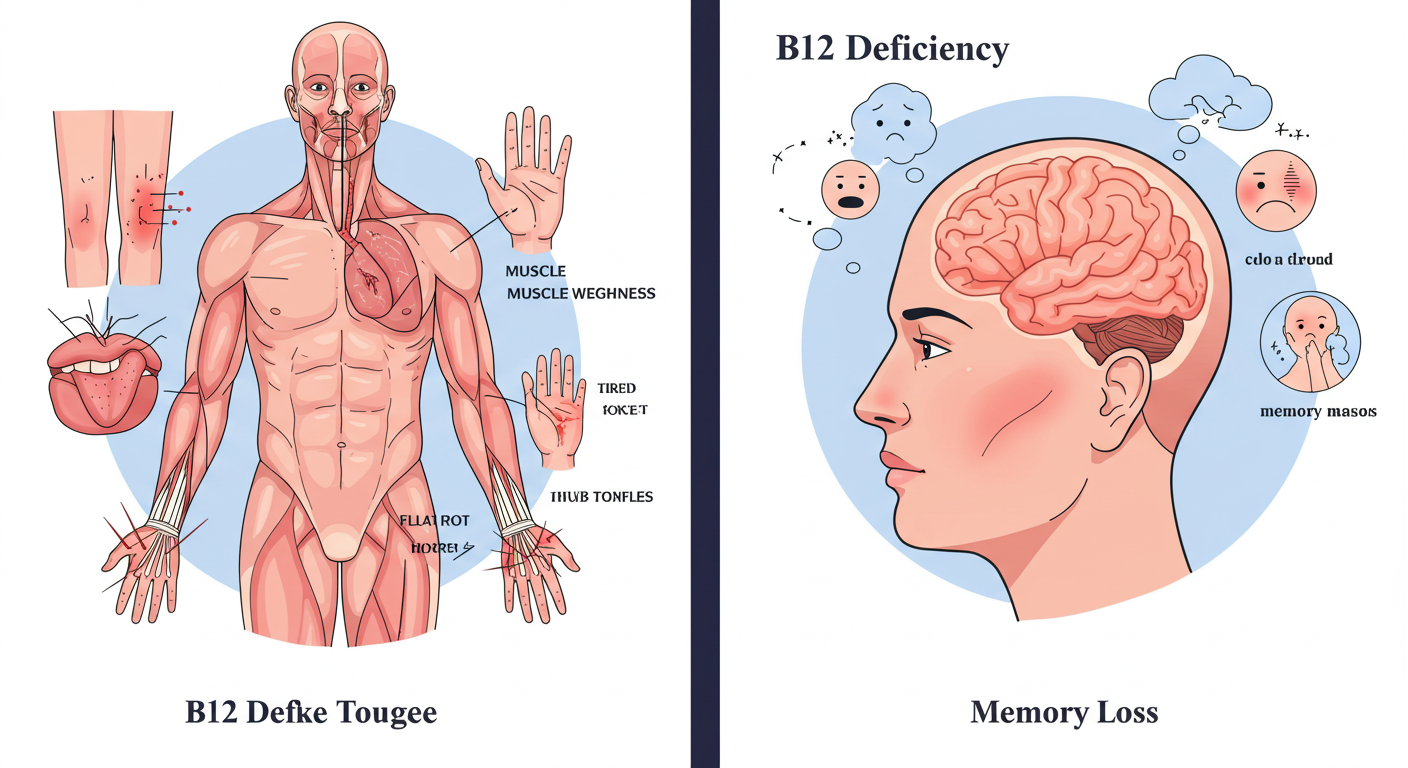
From my years of clinical work, I've seen many people struggle with subtle yet life-altering health shifts, only to later discover they were linked to a Vitamin B12 deficiency. One patient came in with fatigue, unable to get through her day without needing long naps. She also noticed pale skin, and frequent headaches. These aren't rare complaints; in fact, such signs are often overlooked or mistaken for other issues. The symptoms of low vitamin B12 can range from focus issues and mouth pain, to stomach issues and a feeling of pins and needles in the limbs — all of which are early flags I’ve come to recognize.
It’s important to understand that a deficiency in B12 affects both physical and psychological health. I’ve seen younger adults and older patients alike report mood changes such as depression, only to find their B12 levels were below normal. While B12 is available in many foods, an insufficiency is still common, especially in people with poor diets or absorption problems. The bottom line is that these symptoms — even low energy, skin tone shifts, and mild cognitive lapses — may be your body’s way of signaling that something deeper is going on. If you feel this list reflects how you’ve been feeling, it’s worth asking your doctor to check your levels — it could be life-changing.
The Role of B12 in Your Body (And How Deficiency Sneaks In)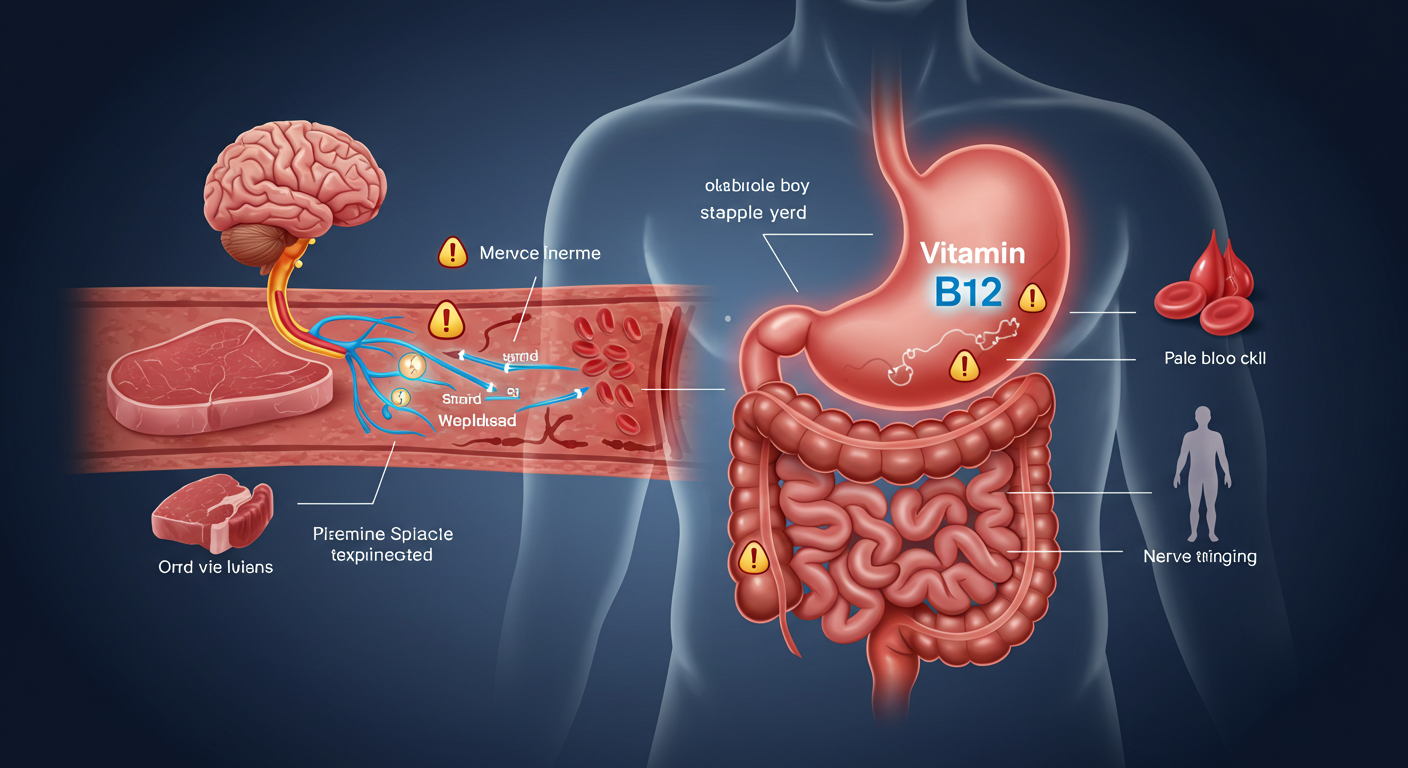
During my clinical nutrition work, I've seen how easy it is to overlook a vitamin B12 deficiency—especially since in Stage I, when serum levels drop, there are no symptoms. But as we enter Stage II, the cell store begins to deplete, silently causing changes that most don’t notice until much later. By Stage III, things become more serious—this biochemical deficiency can trigger an increase in methylmalonic acid, lead to reduced DNA synthesis, and bring on symptoms like confusion, mood swings, difficulty walking, talking, and even irritability. And if ignored until Stage IV, the clinically evident deficiency results in macrocytic anemia, where the body produces abnormally large red blood cells. At this point, people feel incredibly tired and weak, often misattributing it to general fatigue or stress.
Read More: 12 Healthy Sleep Hygiene Tips
To prevent this, I always advise a proactive approach through diet. The recommended daily allowance for adults is modest, yet foods rich in B12 are often missing from common meals. Just 3 ounces of beef liver contains 70.7 micrograms—that’s 2,944% of your daily need! For those who can’t stomach liver, clams provide 17 micrograms in the same serving size, or 708% of the daily value. Other excellent sources include oysters, salmon, tuna, and ground beef. If you're vegan or vegetarian, incorporate nutritional yeast, fortified cereals, fortified breads, and fortified plant milks.
During pregnancy, or if you’re planning to breastfeed, B12 becomes even more critical to avoid growth delays in your baby and to ensure proper brain and spinal development. I've seen patients rely on megadoses of supplements or injections, especially if deficiency has advanced or if they’re taking medications or drinking alcohol excessively (more than two drinks for men, one drink for women). While rare, very high levels—especially via injections—can sometimes trigger acne, rosacea, and in extreme cases, a higher death rate has been observed, though the cause remains unclear. Don’t underestimate the power of early action.






